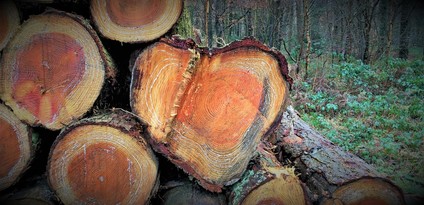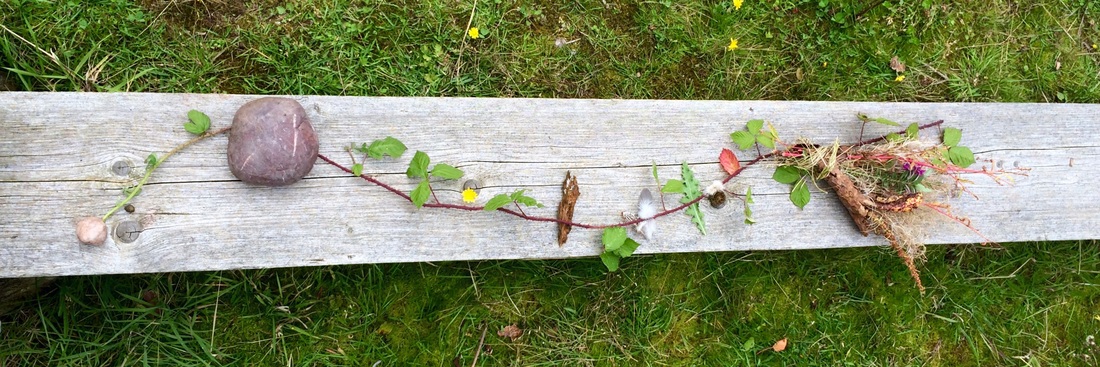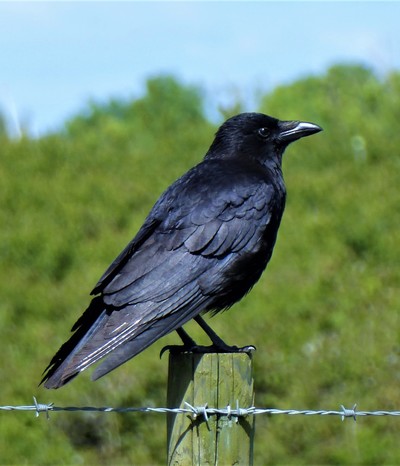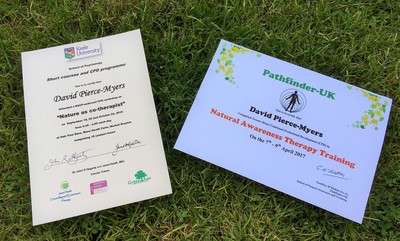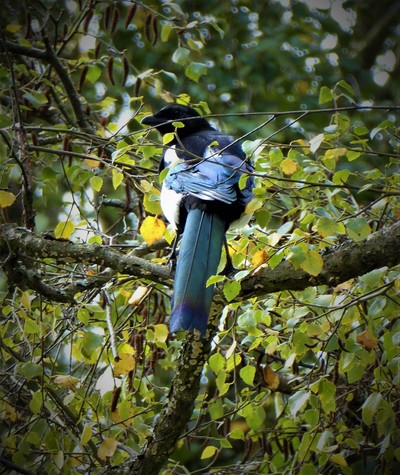When I began this work I realised that counselling is about helping people find their own way. Combined with my experience of feeling whole, healthy and at peace in the woods and at the beach, I experience that at its best, counselling is 'pathfinding' and supporting the individual on their way: 'The path becomes a fluid state of mind between, away from and towards other thoughts, moods, intuitions, ideas.' Paul Evans 'Field Notes from the Edge' 2015
All of the photos on this page are my own, mostly taken with a phone whilst wandering around the south of England, near and far from town, and are used here to illustrate the ease of contact with nature and the positive, negative and curious feelings it can provoke. The quotes I have chosen to include are intentionally from a non-therapist to illustrate the transcendental and powerful effect nature contact can have.
We are natural beings, living unnatural lifestyles, some of which helps us to live safer easier lives and some of which poisons us and drives us crazy. It can therefore be useful to bring ourselves into contact with nature to rebalance ourselves and trigger insights:
'We may not know the world as our ancestors did; our urbanised lives may not follow the rhythm of the changing seasons and the seasons themselves have had their rhythm broken by our business. But our senses are still hitched to natural phenomena and , like the gossamer threads slung by nocturnal orb spiders in autumn, they twitch with meaning and significance when some fleeting sight, sound, smell, taste, touch or thought trips them.' Paul Evans 'Field Notes from the Edge' 2015
Whilst I believe it is important to look inward to help make sense of our experience I also believe and experience that it is vital to connect outwardly with our host environment, be it forest or city there is nature everywhere and if we allow it to touch us it can change us.
'What helps to resist the pernicious feelings of doom or self-importance right now are the thunder daisies, moon daisies, dog daisies, oxeye daisies growing on the hedgebank' Paul Evans 'Field Notes from the Edge' 2015
'My shrinking in size and significance before the sweeping landscape is humbling and invigorating , an altered state. It always takes a few giddy seconds to adjust to the space'...'This kind of numinous experience is not dependent on a belief or faith in anything supernatural or divine but nevertheless I experience a feeling of sacredness' Paul Evans 'Field Notes from the Edge' 2015
As well as beauty, inspiration and relaxation in nature there is also fear, a darkness that probably lays deep in all of us, the fear of spiders, the fear of floods, the fear of wolves, the fear of being lost (in the woods), the fear of our physical frailty, the fear of incompetence in the wilderness and in our attempts to conquer this we have created a new fear: the fear that we have a limited time left as we continue to live without regard for our impact on our home. 'In response to this fear humans have developed strategies which aim to control Nature, to insulate and protect ourselves from it. As our ability to manage the physical environment increases, so our protective strategies become more aggressive; we retaliate against Nature. There is a sense now that we have gone too far: too far for Nature and too far for ourselves. And yet we are finding it impossible to pull back, our society shaped by ecophobia continues to be driven by it.' Paul Evans 'Field Notes from the Edge' 2015
I believe simple experiences of contact and experience can change us and maybe help us pull back and if not prevent disaster, allow us to understand it in full awareness and have one less unnamed fear in our unconscious.
I did not like snails. They destroyed the vegetables I ineptly tried grow and although I didn't unleash a full scale 'war' against them I would throw them over the wall with a disconnected superiority and disregard. One summers day I found myself lazing on the grass and began watching a snail, really watching a snail, tuning in to a snail, watching the intricate way it moved and sensed it's immediate environment. It fascinated me. After watching this snails exploration and journey for fifteen minutes I knew precisely no more about snails than before but I had a profound awareness of its uniqueness, it's importance and it's being of equal worth requiring respect and to be allowed it's place. From now on I will have fewer runner beans but more snails to enjoy and, selfishly, a greater sense of well being. If this can happen with a snail imagine what can happen as we start to develop our sense of our interconnectedness with everything?
'What helps to resist the pernicious feelings of doom or self-importance right now are the thunder daisies, moon daisies, dog daisies, oxeye daisies growing on the hedgebank' Paul Evans 'Field Notes from the Edge' 2015
'My shrinking in size and significance before the sweeping landscape is humbling and invigorating , an altered state. It always takes a few giddy seconds to adjust to the space'...'This kind of numinous experience is not dependent on a belief or faith in anything supernatural or divine but nevertheless I experience a feeling of sacredness' Paul Evans 'Field Notes from the Edge' 2015
As well as beauty, inspiration and relaxation in nature there is also fear, a darkness that probably lays deep in all of us, the fear of spiders, the fear of floods, the fear of wolves, the fear of being lost (in the woods), the fear of our physical frailty, the fear of incompetence in the wilderness and in our attempts to conquer this we have created a new fear: the fear that we have a limited time left as we continue to live without regard for our impact on our home. 'In response to this fear humans have developed strategies which aim to control Nature, to insulate and protect ourselves from it. As our ability to manage the physical environment increases, so our protective strategies become more aggressive; we retaliate against Nature. There is a sense now that we have gone too far: too far for Nature and too far for ourselves. And yet we are finding it impossible to pull back, our society shaped by ecophobia continues to be driven by it.' Paul Evans 'Field Notes from the Edge' 2015
I believe simple experiences of contact and experience can change us and maybe help us pull back and if not prevent disaster, allow us to understand it in full awareness and have one less unnamed fear in our unconscious.
I did not like snails. They destroyed the vegetables I ineptly tried grow and although I didn't unleash a full scale 'war' against them I would throw them over the wall with a disconnected superiority and disregard. One summers day I found myself lazing on the grass and began watching a snail, really watching a snail, tuning in to a snail, watching the intricate way it moved and sensed it's immediate environment. It fascinated me. After watching this snails exploration and journey for fifteen minutes I knew precisely no more about snails than before but I had a profound awareness of its uniqueness, it's importance and it's being of equal worth requiring respect and to be allowed it's place. From now on I will have fewer runner beans but more snails to enjoy and, selfishly, a greater sense of well being. If this can happen with a snail imagine what can happen as we start to develop our sense of our interconnectedness with everything?
So, 'Natural Awareness Therapy ', how does that work?
Despite our modern technologically aided lives we still enjoy parks, beaches, riverside settings, woodland, pet animals and nature programmes.
We do not know the exact way in which Natural Awareness Therapy works , exposure to nature has been proved by scientific testing to reduce stress hormones, reduce blood pressure, reduce heart rate, improve mood, reduce depression, reduce PTSD symptoms, reduces anxiety /fear, increase empathy and helpfulness to others and increase
self-compassion.
Put simply, Natural Awareness Therapy aids our connection with nature to achieve the benefits above.
There are three key theories if you want to explore more:
There are many forms of nature based or nature assisted therapies which can include animal assisted therapies, therapeutic gardening, care farming, green exercise therapy, environmental conservation, wilderness therapy, nature arts and crafts and therapeutic horticulture.
For more on this see here.
We evolved in natural environments, our bodies and brains are designed to make sense of animals, plants, rivers and weather; not traffic, artificial deadlines, continual television/computer/phone input.
Continual exposure to artificial stimulants and stressors alongside others also exposed to artificial stimulants and stressors is highly toxic to people. We have found that the easy way to deal with this is to drink, take drugs, buy stuff, and gratify our impulses which works temporarily but often increases stress, anxiety and a lack of satisfaction. Natural Awareness Therapy aims to address this by providing opportunities to spend time in natural environments, exposed to natural elements, plants, animals, rhythms and consider our reactions to these things in an open and non-judgemental way.Natural Awareness Therapy also aims to help you change the way you view and interact with natural environments in a way that can be beneficial for you and the natural world.
Despite our modern technologically aided lives we still enjoy parks, beaches, riverside settings, woodland, pet animals and nature programmes.
We do not know the exact way in which Natural Awareness Therapy works , exposure to nature has been proved by scientific testing to reduce stress hormones, reduce blood pressure, reduce heart rate, improve mood, reduce depression, reduce PTSD symptoms, reduces anxiety /fear, increase empathy and helpfulness to others and increase
self-compassion.
Put simply, Natural Awareness Therapy aids our connection with nature to achieve the benefits above.
There are three key theories if you want to explore more:
- The Biophilia Hypothesis
- The Attention Restoration Theory
- The Psycho-evolutionary stress reduction theory
There are many forms of nature based or nature assisted therapies which can include animal assisted therapies, therapeutic gardening, care farming, green exercise therapy, environmental conservation, wilderness therapy, nature arts and crafts and therapeutic horticulture.
For more on this see here.
We evolved in natural environments, our bodies and brains are designed to make sense of animals, plants, rivers and weather; not traffic, artificial deadlines, continual television/computer/phone input.
Continual exposure to artificial stimulants and stressors alongside others also exposed to artificial stimulants and stressors is highly toxic to people. We have found that the easy way to deal with this is to drink, take drugs, buy stuff, and gratify our impulses which works temporarily but often increases stress, anxiety and a lack of satisfaction. Natural Awareness Therapy aims to address this by providing opportunities to spend time in natural environments, exposed to natural elements, plants, animals, rhythms and consider our reactions to these things in an open and non-judgemental way.Natural Awareness Therapy also aims to help you change the way you view and interact with natural environments in a way that can be beneficial for you and the natural world.
Natural Awareness Therapy involves participating in a variety of outdoor activities in a natural setting such as woodland. These activities are designed to help you slow down, relax and tune in to the natural environment and discover your place in it. The activities are not conservation work or bush craft skills involving tools, shelter building or fire lighting. The activities are not designed to teach you skills but to teach you about yourself away from the distractions of the modern world and our resulting busy minds. The sessions are facilitated by a counsellor who has been trained in Natural Awareness Therapy but as with any experiential work the individuals and the group will have to take some responsibility for their own experience.
You can expect to be relaxed, to feel confused, to be surprised, to be excited, to be uncomfortable, to learn about yourself, to enjoy yourself, to feel lost, to question your beliefs about yourself, to question your beliefs about the world.
You can expect to be relaxed, to feel confused, to be surprised, to be excited, to be uncomfortable, to learn about yourself, to enjoy yourself, to feel lost, to question your beliefs about yourself, to question your beliefs about the world.
Natural Awareness Therapy is not for everyone and will only be offered if appropriate and:
Are willing to work 1:1 or in a small group.
You want to try a different approach to learning about yourself and find new ways of soothing yourself.
You are willing to attend in a variety of weather conditions.
You are able to walk for several miles on uneven ground. (this could be worked around if required)
One of the main lessons of the training I received was that before offering nature assisted therapy the question has to be 'Is it good for the client, is it good for nature and is it good for me?'
'Human existence is so all-encompassing that while watching ourselves and each other we miss the glimmer of other existences'...'Maybe we are the ones who should look closer for the ghosts that dwell among us; the shining, strange and beautiful guests of our own swarm. 'Paul Evans 'Field Notes from the Edge' 2015
'The journey into Britain's secret wilds begins when I resolve to stop looking for them. One thing leads to another and the wild finds me' Paul Evans 'Field Notes from the Edge' 2015
Are willing to work 1:1 or in a small group.
You want to try a different approach to learning about yourself and find new ways of soothing yourself.
You are willing to attend in a variety of weather conditions.
You are able to walk for several miles on uneven ground. (this could be worked around if required)
One of the main lessons of the training I received was that before offering nature assisted therapy the question has to be 'Is it good for the client, is it good for nature and is it good for me?'
'Human existence is so all-encompassing that while watching ourselves and each other we miss the glimmer of other existences'...'Maybe we are the ones who should look closer for the ghosts that dwell among us; the shining, strange and beautiful guests of our own swarm. 'Paul Evans 'Field Notes from the Edge' 2015
'The journey into Britain's secret wilds begins when I resolve to stop looking for them. One thing leads to another and the wild finds me' Paul Evans 'Field Notes from the Edge' 2015
If you never opt for any formal nature therapy but you feel out of sorts or let down by domestic consumer offerings, go outside, have a walk, a swim, build a den, take photos of the beautiful or the curious and even feel some fear of the unfamiliar. Consider our human superiority and wonder why we aren't as strong as an ant, wonder why we can't fly, stay underwater or even survive outside unaided for long. You may want to actively help conserve your local natural environment, join an environmental organisation or simply pick up some litter and feel good about yourself.
Go outside, pause, notice, engage, forget about yourself for a bit and maybe relax.
Go outside, pause, notice, engage, forget about yourself for a bit and maybe relax.
